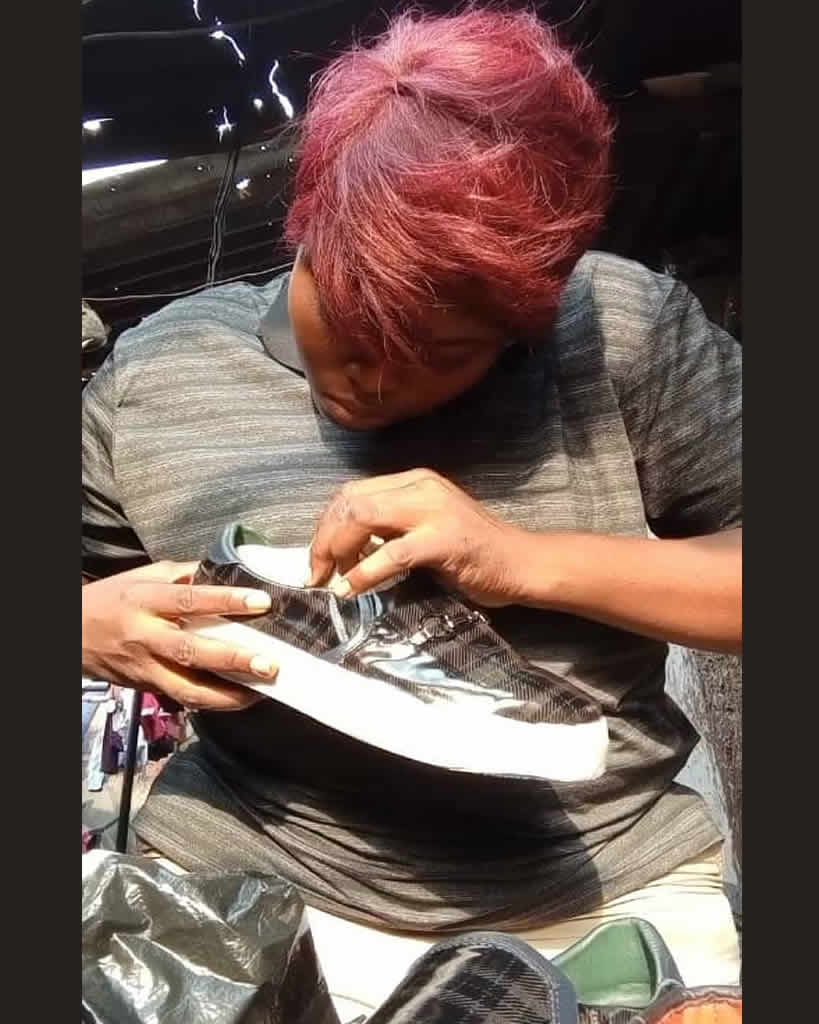 The sounds of whirling machine pervaded the air as Oghenekwhe Alajabo, popularly known as Lady Cobbler Lagos, fixed leather to the filing machine.
The sounds of whirling machine pervaded the air as Oghenekwhe Alajabo, popularly known as Lady Cobbler Lagos, fixed leather to the filing machine.
Alajabo had wanted to work as a cobbler as a side hustle having studied Marine Biology. She eyed the oil and gas sector. But fate ruled otherwise, so she faced shoe-making on a full-time basis and rented an office at Surulere area of Lagos where she crafts leather shoes, palms and sandals for males and females.
But the foreign exchange crisis and poor economy had affected customer patronage. Besides, manual crafting of the footwear dragged production and effectiveness of her skills. She, however, persists in her craft and makes footwear with imported leather materials.
She said, “For Nigerian leather, we don’t have the processing power yet to make the real leather free of bacteria and smell. One of the reasons we don’t use Nigerian leather is because of the smell, so it is only good for export because they can work more on it and make it better.
“Also, we work more with imported leather because times are changing and everyone wants to wear a shoe that they can be proud of and the Nigerian leather might not give us the privilege to do that. If it is thick, it is overly thick, if it is light, it is overly light.”
The female cobbler decried also noted that the country’s harsh economic climate was taking a toll on her business.
She added, “Every new day brings an increase in the price of materials because what N10,000 can buy last week is what I’ll have to buy for N11,500 the next week. The price can increase as much as N12,000 to N13,000. These increases further bring a loss on the cobblers such that the customers who had already paid for a particular style and colour of footwear would refuse to listen to explanations of increased market price or add to the agreed price.”
She further said that the increase in the prices of other factors of production such as electricity and rent were challenging to her business.
The female cobbler the degrading way Nigerian customers regarded locally made footwear, stating that “customers expect that because the shoes are handmade and made in Nigeria it should be sold for N1 or N50 or that with N50 they can buy all the footwear in one’s shop but that is supposed to be so.’’


